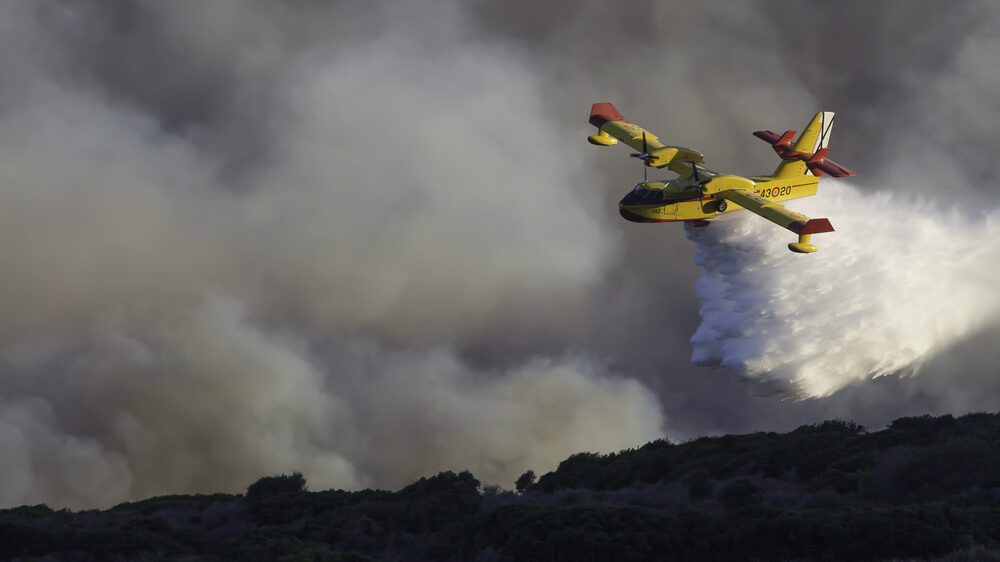Asturias wildfires and farming: Spain’s battle with nature and regulation
- March 5, 2024
- 7:55 am


Iain Hoey
Share this content
Rising Wildfire Threats in Asturias
Asturias, a region in Spain, is facing an escalating challenge with wildfires.
Last spring, nearly 300 fires caused widespread disruption, forcing evacuations and reaching the outskirts of Oviedo.
Authorities link these incidents to a combination of climatic changes and contentious farming practices.
Alejandro Calvo, head of Asturias’ fire prevention and extinction department, explained the increased budget and resources allocated to combat such wildfires.
The region’s fire management budget has been boosted by almost 20%, totalling 70 million euros, to enhance firefighting capabilities and establish round-the-clock surveillance.
Tensions between Authorities and Farmers
The situation in Asturias reflects deep-rooted tensions between regional authorities and local farmers.
Authorities accuse some cattle-farmers of deliberately starting fires for creating grazing pastures, a claim strongly denied by the farmers.
The practice of burning scrub, historically used to manage vegetation, is now restricted by stringent regulations and permits.
Jose Ramon Garcia, head of the farmers’ union UCA, criticizes the regional leadership for inadequate management of flammable undergrowth, arguing that natural causes are mostly to blame for large fires.
Garcia, convicted in 2016 for illegal fire-setting, continues to challenge the accusation, despite the conviction being upheld by Spain’s Supreme Court.
Environmental and Economic Factors
Environmental changes and economic pressures exacerbate the wildfire crisis.
Calvo highlighted a significant rise in average temperatures in the region, contributing to the increased danger of traditional fire-setting.
Additionally, the region faces challenges from depopulation, with younger generations moving to cities and leaving fewer people to manage rural landscapes.
This shift has implications for traditional methods of fire management and exacerbates the risk of uncontrolled wildfires.
Furthermore, economic pressures on farmers, heightened by changes in the European agricultural landscape and reduced financial support, add to the complexity of the issue.
Seeking Solutions and Balance
Efforts are being made to find a balance between traditional farming practices and modern environmental realities.
Calvo emphasizes the importance of public awareness and adherence to legal procedures for controlled burns.
Meanwhile, farmers advocate for more local involvement in resource management and assert their role in preventing fires through grazing.
The situation in Asturias reflects a broader challenge faced by rural communities in adapting to changing environmental and regulatory landscapes.
IFSJ Comment
The complex situation in Asturias, Spain, mirrors the broader challenges of adapting traditional farming practices to modern environmental and regulatory contexts.
The escalating wildfires highlight the need for a balanced approach that respects historical farming methods while addressing the realities of climate change and bureaucratic frameworks.
This situation also underscores the importance of collaboration between local farmers, regional authorities, and environmental experts in developing sustainable strategies for land management and fire prevention.
Asturias’ experience serves as a case study for other regions facing similar dilemmas, emphasizing the need for adaptive management practices that can navigate the intricate interplay of environmental, economic, and social factors.



